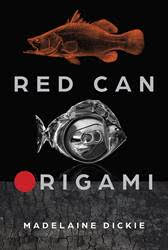Dangling modifiers (often participles) continue to hang around in sentences, probably because most writers (and readers) are indifferent to them. Some work, but most don’t. This month, my editing work has encountered so many of the latter from various sources that it has piqued my interest and motivated me to do some thinking on the subject. You may ask: What are dangling modifiers/participles? And why can they be a problem in one’s writing? Here is an example:
Surveying the lush green mountainous expanse below, a cow plodded past the trekkers.
The problem here is that the action in the opening clause (surveying) is unrelated to the subject of the following clause, the cow. The participle, surveying, (every participle is a verb; most present participles end in –ing, most past participles end in –ed) relates to the trekkers (the intended subject); however, the sentence is ambiguous because it suggests that the cow is doing the surveying, which she may be! The following sentence is less ambiguous:
As the trekkers surveyed the lush green mountainous expanse below, a cow plodded past.
This sentence eradicates the dangling, or hanging, participle and in so doing clarifies the intended meaning.
As grumpy grammarian Simon Heffer writes: “There is alarming scope for participles to go wrong.” He gives this example:
After fighting the flames for several hours the ship was abandoned
He points out that “the ship did not fight the flames; but that is the logical sense of this construction”. Heffer concludes that the use of the passive voice in the second clause exposes the lack of clarity: “Had the sentence been left in the active voice and read ‘after fighting the flames for several hours the men abandoned ship’, the sense would have been clear and logical”.
Here is an example of a dangling participle that actually works:
Forced to recant, Galileo was sentenced to serve the remaining nine years of his life under house arrest.
The participle, forced, in the opening clause is clearly connected to the subject of the following clause: Galileo. Dangling participles like this are harmless and it could be argued that a sentence in this context adds variety to what could be an otherwise drab paragraph regurgitating historical information.
The following sentence has two danglers.
Describing his method, Spanish artist Joan Miró said in 1925, “Rather than setting out to paint something, I begin painting and as I paint the picture begins to assert itself, or suggest itself under my brush.… The first stage is free, unconscious.”
Even though the participle (describing) attaches to the subject (the artist) in the second clause, this is a convoluted way to introduce Miró’s quote. Note that Miró begins with a dangling modifier, which works. The introduction could be improved by writing it in a more succinct way:
In 1925, Spanish artist Joan Miró described his method: “Rather than setting out to paint something, I begin painting and as I paint the picture begins to assert itself, or suggest itself under my brush.… The first stage is free, unconscious.”
In the following sentence, the subject has disappeared altogether and the participle is dangling in mid-air. In fact, it reads as if the race was won by a meal of fish and chips!
Having won the race, a meal of fish and chips was consumed.
The sentence needs to be rewritten to include the intended subject.
Having won the race, David consumed a meal of fish and chips.
Here is another dangler:
Injured and bleeding, the castle moat was too wide for Sir Lancelot to swim across.
This sentence is less ambiguous:
Sir Lancelot, injured and bleeding, realised that the castle moat was too wide to swim across.
The following sentence includes a dangling modifier:
Now eight weeks old, the vet assured us that our puppy will be fine.
The intended subject is the vet, but she or he is modified by the clause, ‘now eight weeks old’. Of course the vet is not eight weeks old! A grammatically-correct, well-formed version would be:
The vet assured us that our puppy, now eight weeks old, will be fine.
Finally, there are some dangling modifiers that work in the context of discourse because they have become the standard phrases of reports and documentary writing. For example, the following hanging participles are a commonplace way of indicating an ongoing topic of discussion, whether you like them or not:
Having said that, the report presents workable alternatives …
Regarding your behaviour, a decision has been made …
Provided that the ongoing scheme is viable, management has agreed …
In brief, if you begin a sentence with a dangling modifier, such as a participle construction, make sure the subject of it is the subject you intend, and that the intended subject is actually present in the sentence. Look out for the more obtrusive ones in your daily reading—some can be quite funny; but be quick to identify and correct those dangling grammatical culprits that may crop up in your writing.
Proofreader/Editor
 If you’re ready to have your writing proofread or edited, or you would like an appraisal of your writing, whether it is a complete manuscript or a work-in-progress, then please email me via my contact page with a brief overview of your needs and I will give you an idea of the type of personalised service/s I can offer that I think would best suit you at this stage in your writing project (mentoring, manuscript appraisal, editing, proofreading).
If you’re ready to have your writing proofread or edited, or you would like an appraisal of your writing, whether it is a complete manuscript or a work-in-progress, then please email me via my contact page with a brief overview of your needs and I will give you an idea of the type of personalised service/s I can offer that I think would best suit you at this stage in your writing project (mentoring, manuscript appraisal, editing, proofreading).
My editing is based on the Australian Style Manual (ASM) unless an author has been commissioned to write a book using the publishing house style guide. In particular, editing academic writing requires the editor to adhere to the preferred style and referencing of the university department or publisher.
Simon Heffer, ‘Simply English: An A to Z of Avoidable Errors’ (2014)
Featured artwork: Bruce Nauman, ‘Untitled (Hand Circle)’, 1996, Bronze, silver solder and copper, Tate, London





